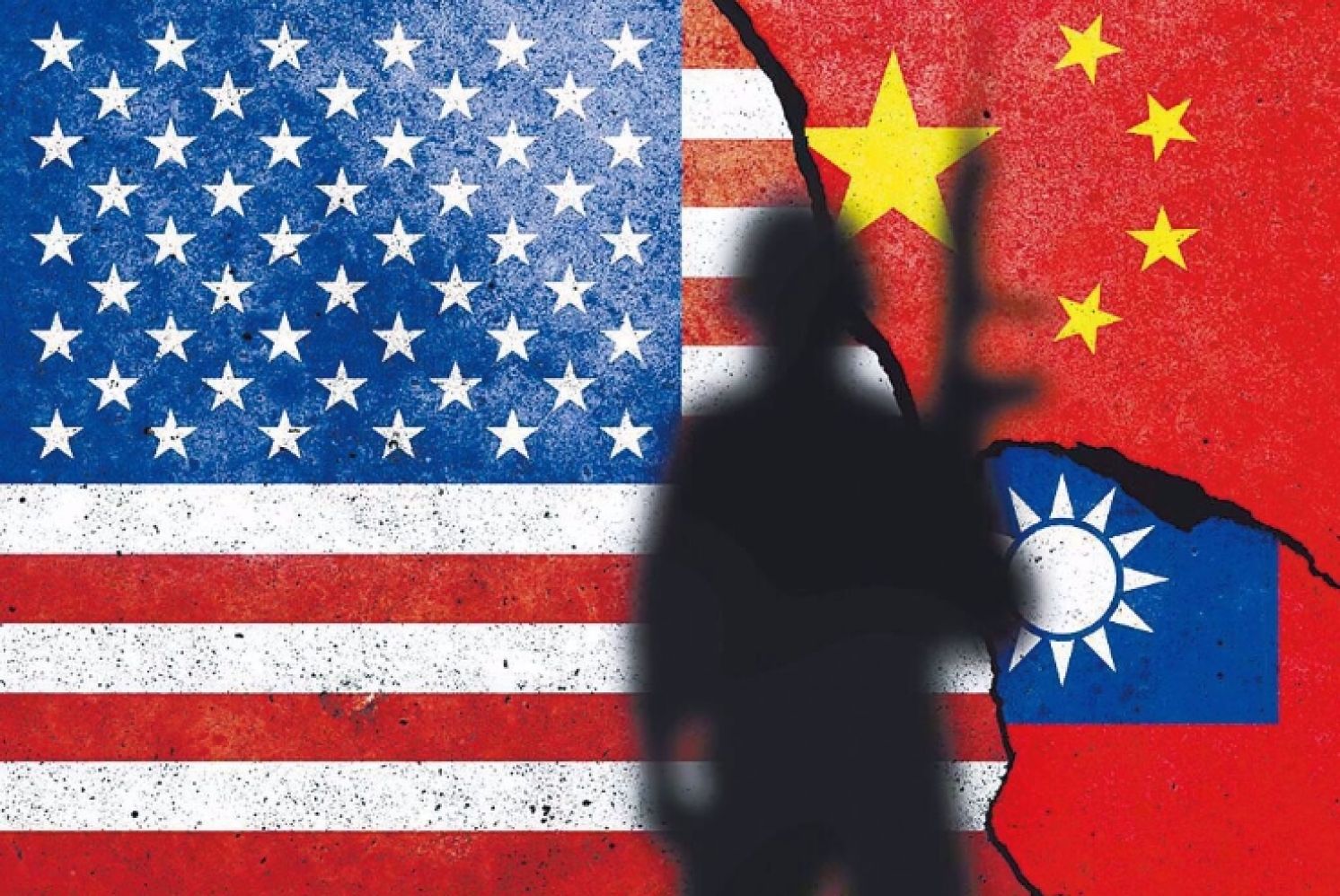
U.S. Pushes Friend-Shoring Policy But Taiwan Deemed Dangerous Shore
By Yiin Chii-Min
China Times, April 22, 2023
The Peterson Institute for International Economics published a report last month, finding that five years into the trade war, China continues its slow decoupling from U.S. exports. The report states that since the start of the trade war between China and the Trump administration in 2018, China has gradually shifted the importation of goods from the United States to other countries, and vice versa. Both sides are worried that the other side will use trade as a weapon in the name of security to suddenly stop imports or exports, so they adopt a decentralized strategy to reduce their dependence on each other.
Regarding this trend, Taiwan must pay special attention to the fact that the changes in the economic and trade relations between the United States and China will impact itself. Over the years, Taiwanese business people have used the mainland as their production base, exporting to the United States and other places, and at the same time driving the export of Taiwan's components to the mainland. The aforementioned structural changes have affected Taiwanese investment in the mainland and impacted Taiwan's export growth. This will hit Taiwan's economy.
The Heritage Foundation published an article last month about Taiwan’s economy breaking away from China’s. The article indicates that judging from investment and export data cross-strait economic relations have begun to decouple. According to the article, investment by Taiwanese business people in the mainland has declined rapidly, from $9 billion in 2017 to $5 billion in 2022. The article concludes the U.S. trade policy towards China has played a major role.
Comparing the change in Taiwan's exports to the United States with the timetable when the U.S.-China trade war began can also confirm that cross-strait economic and trade relations have indeed been affected by American policies. In 2018, both the United States and China raised each other's export tariffs several times, and the two sides signed the "U.S.-China Economic and Trade Agreement" in January 2020. The tariffs have not yet been lowered. So far, the United States has imposed an average tariff of 19.3 percent on goods imported from China, while China’s tariff on imports from the United States is 21.1 percent, triggering investment and trade diversion effects.
Under the obstacle of high tariffs in the United States, Taiwanese businesspeople urgently adjusted production capacity across the Taiwan Strait and moved some orders from the mainland back to Taiwan for production. In 2018, the United States accounted for 11.8 percent of Taiwan's exports, which rose sharply to 14 percent in 2019 and reached 15.7 percent last year. Computers, computer parts and components, and mobile phone sets accounted for 30 percent of Taiwan's exports to the United States in 2022, up from 16 percent in 2018. However, with Taiwan’s Five Shortages--lack of water, power, land, manpower, and talent--and the relatively high production costs, moving the production capacity back to Taiwan is only a short-term emergency measure.
Tariffs are a prelude to the impact of American policies on cross-strait economies and trade. Since President Joe Biden took office, his administration has continued to increase its blocking measures against the semiconductor industry in mainland China, requiring leading companies to “de-Sinicize.” Among those measures, Secretary of the Treasury Margaret Yellen’s "friend-shoring" policy has a particularly significant impact on the cross-strait economy and trade and the future of Taiwan’s industrial development.
In April last year, Secretary Yellen revealed the "friend-shoring" supply chain proposition: “We have a group of countries that adhere to a set of norms and values about how to operate in the global economy and how to operate the global economic system. We need to deepen the relationship and mutual cooperation with these partners, to ensure that we can guarantee the key supplies we need.” In other words, the so-called friend-shoring comes from the interests of the United States and aims to establish supply chain partnerships with like-minded countries. As for what “like-minded” is, it is completely defined by the United States. While they say Taiwan has always been an important ally of the United States, Morris Chang, founder of the Taiwan Semiconductor Manufacturing Company (TSMC), questioned this as the friend-shoring of the United States does not include Taiwan.
What is even more frightening is that not only did the U.S. not include Taiwan in its friend-shoring list, but it even regarded Taiwan as a "dangerous shore." On the grounds that the two sides of the Taiwan Strait are at geopolitical risk and that there will be war in the future, through multiple channels such as U.S. officials and customers, it put pressure on downstream assembly plants to move their production bases out of the mainland in the beginning, and then forced key upstream industries in the supply chain to move from Taiwan to overseas.
A few days ago, the media reported that Taiwan’s six major original equipment manufacturers for electronic products have completed their deployment in Vietnam, and Taiwan Printed Circuit Association has also organized several delegations to the Association of Southeast Asian Nations (ASEAN) countries to inspect the locations of plants. The result will gradually hollow out Taiwan’s industry and drag down Taiwan’s economy.
For Taiwan, the U.S. friend-shoring policy is actually a "de-Taiwanization" policy. Former U.S. Secretary of State Henry Kissinger once stated that it may be dangerous to be America's enemy, but to be America's friend is fatal. The United States is sacrificing Taiwan to achieve its political goals. Can our government still sit back and watch the United States destroy Taiwan without doing anything?
The author formerly served as Minister of Economic Affairs from 2008 to 2009, Minister of the Council for Economic Planning and Development from 2012 to 2013, and Minister without Portfolio of the Executive Yuan from 2009 to 2011 and from 2012 to 2013.
From: https://www.chinatimes.com/newspapers/20230422000381-260109